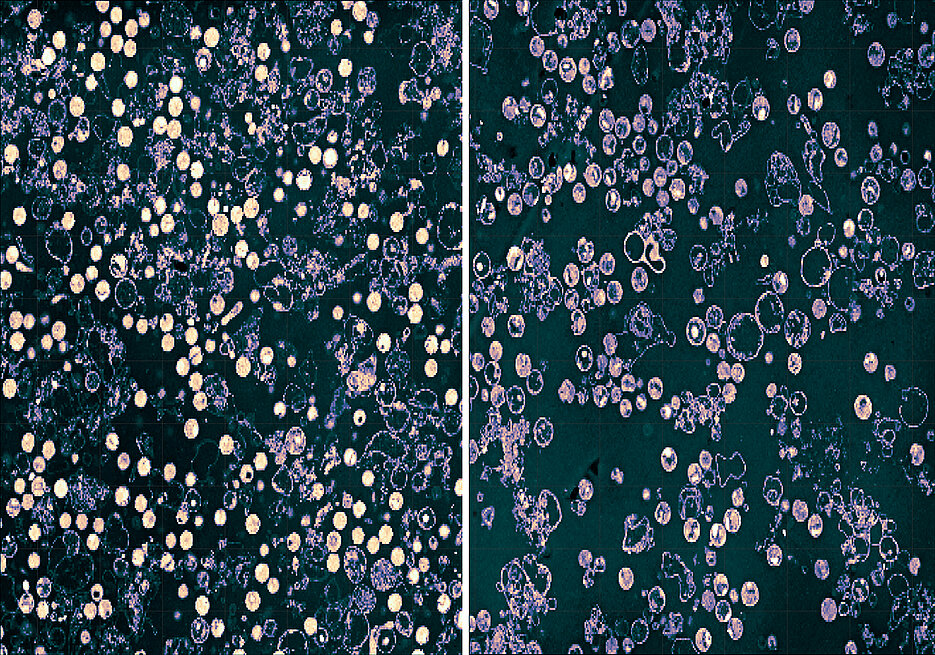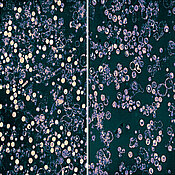Chlamydia: Greedy for Glutamine
08/03/2020If chlamydiae want to multiply in a human cell, the first thing they need is a lot of glutamine. Würzburg researchers have clarified how the pathogenic bacteria obtain this substance.

Chlamydia are bacteria that cause venereal diseases. In humans, they can only survive if they enter the cells. This is the only place where they find the necessary metabolites for their reproduction. And this happens in a relatively simple way: the bacteria create a small bubble in the cell and divide in it over several generations.
What is the decisive step that initiates the reproduction of the bacteria? It has not been known so far. Researchers from Julius-Maximilians-Universität Würzburg (JMU) in Bavaria, Germany, have now discovered it. This is important because the first step in the reproduction of the pathogens is likely to be a good target for drugs.
Glutamine import into the host cell increases
In the case of Chlamydia, the first step is to reprogram the metabolism of their human host cells. The cells then increasingly import the amino acid glutamine from their environment. If this does not work, for example because the glutamine import system is out of order, the bacterial pathogens are no longer able to proliferate. This was reported by a JMU team led by Dr. Karthika Rajeeve, who has meanwhile been awarded a professorship at the Aarhus University in Denmark, and Professor Thomas Rudel in the journal Nature Microbiology.
"Chlamydiae need a lot of glutamine to synthesize the ring-shaped molecule peptidoglycan," explains Professor Rudel, who heads the Chair of Microbiology at the JMU Biocenter. In bacteria, this ring molecule is generally a building material of the cell wall. Chlamydiae use it for the construction of a new wall that is drawn into the bacterial cell during division.
Next, the JMU team hopes to clarify the importance of the glutamine metabolism in chronic chlamydiae infections. This might provide information that might help to better understand the development of severe diseases as a result of the infection.
Facts about Chlamydia
Chlamydiae cause most venereal diseases in Germany. The bacteria are sexually transmitted and can cause inflammation in the urethra, vagina or anal area. If an infection is detected in time, it can be treated well with antibiotics.
Around 130 million people worldwide are infected with Chlamydia. The biggest problem is that the infection usually proceeds without noticeable symptoms. This makes it easier for the pathogen to spread, this leads to severe or chronic diseases such as cervical and ovarian cancer.
Cooperation and sponsors
These research results have been obtained in a cooperation of the Chair of Microbiology with other teams of the JMU Biocenter (Almut Schulze and Elmar Wolf), the JMU Organic Chemistry Institute (Jürgen Seibel) and the Technical University of Munich (Wolfgang Eisenreich).
The work was financially supported by the German Research Foundation (GRK 2157) and the European Research Council ERC. In 2019, the ERC awarded Thomas Rudel an Advanced Grant of 2.5 million euros to advance chlamydia research.
Publication
Reprogramming of host glutamine metabolism during Chlamydia trachomatis infection and its key role in peptidoglycan synthesis. Nature Microbiology, August 3, 2020, DOI: 10.1038/s41564-020-0762-5
Contact person
Prof. Dr. Thomas Rudel, Chair of Microbiology, University of Würzburg, T +49 931 31-84401, Thomas.Rudel@biozentrum.uni-wuerzburg.de










